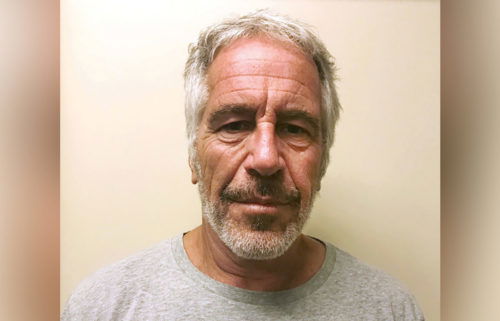NYPD says it will remove some non-convicts from its local DNA database
The New York Police Department says it will soon expunge DNA profiles of some people who’ve never been convicted of a crime from the city’s local DNA database as part of a larger reform of its collection policies.
A law firm that has been critical of the policies, however, says the reform does not go far enough.
The decision relates to a databank, maintained by the city’s chief medical examiner’s office, of DNA that the NYPD has collected in its investigations, including from people questioned, arrested or charged but never convicted.
The NYPD says the database has about 82,000 samples, and that roughly 32,000 of those are from people who are or were suspects in investigations. The other 50,000 samples relate to other aspects or types of investigations, including from missing people, according to NYPD Assistant Commissioner Devora Kaye.
Until now, a person who wanted to remove DNA from the city’s database required a court order.
The database will be audited for profiles to remove “in the coming weeks,” Kaye said Friday.
“These changes are common sense and incorporate feedback we have gathered without compromising the ability for officers to successfully identify criminals, build strong cases and bring justice for victims,” city Police Commissioner Dermot Shea said in a news release Thursday.
How the process will work
In the initial audit, DNA profiles will be removed if these three conditions are met, NYPD says:
• The profile is at least two years old.
• The person has not been convicted of a felony or a misdemeanor.
• The person is not currently a suspect of a crime.
There is an exception. DNA would stay in the database for people who had been arrested or prosecuted in a case in which there’s been no judicial conclusion about the person’s innocence.
Profiles created from now on will automatically will be reviewed, using the above criteria, upon reaching their second year.
As a backstop, the database will be reviewed every four years for profiles that are at least four years old — providing an out for profiles that hadn’t met the expungement criteria in previous reviews.
Law firm says this isn’t enough
The Legal Aid Society, a New York City law firm that focuses on social justice issues, said Thursday it was not satisfied with the NYPD’s plan.
Terri Rosenblatt, supervising attorney for the firm’s DNA unit, issued a statement arguing the NYPD shouldn’t be able to store DNA of people who haven’t been convicted.
“(The NYPD’s) vague suggestion that they will agree to expunge some samples provides little comfort to our clients — including kids as young as 12 — who are among the tens of thousands of people in the … index now or may be in the future,” Rosenblatt said.
“Our lawmakers should step in with real control and oversight of the NYPD and act to ban unlawful and unregulated DNA collection. All New Yorkers should reject anything less,” Rosenblatt added.
State law governs a state DNA databank, which requires a conviction before a sample is included.
Other changes to the city’s DNA policy
The reforms also include, according to NYPD:
• People can get the medical examiner’s office to remove their profile even without the review, and without a court order, if they provide a certificate of disposition showing they’ve been acquitted. This won’t require a lawyer or a hearing.
• Collection of DNA samples from juveniles will be limited to investigations involving felonies, firearm crimes, sex crimes, sexually motivated crimes, and hate crimes. Exceptions can be made by the chief of detectives.
• Officers and detectives must notify a juvenile’s parents or guardians that DNA is going to be collected from the juvenile.
The NYPD says it also will post certain data about the reviews to its website, including the number of DNA profiles in the database and the number removed because of review.




